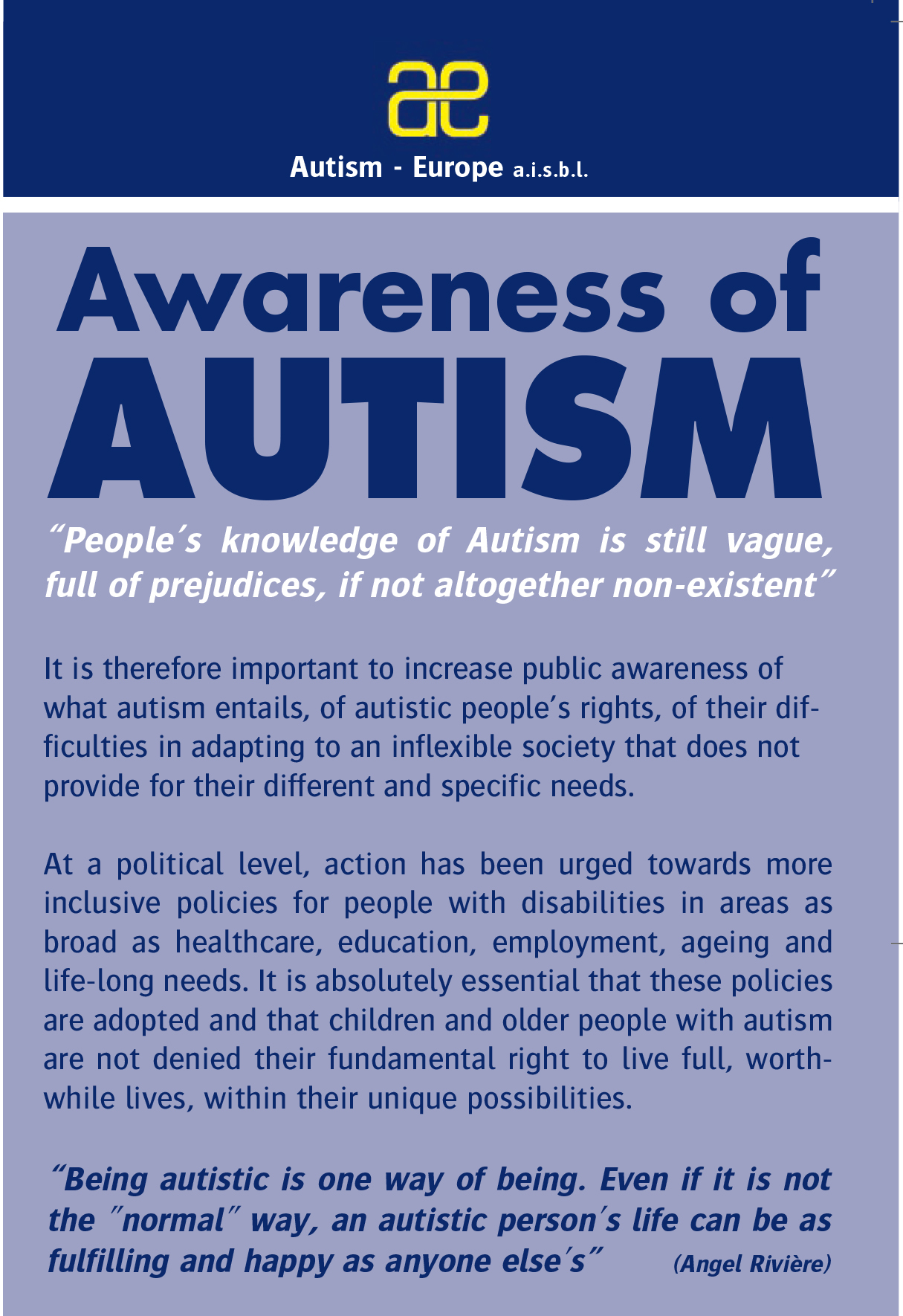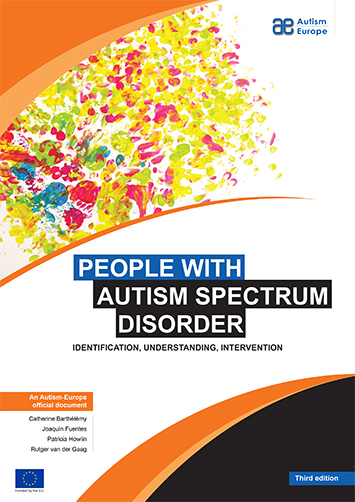
People on the autism spectrum experience persistent difficulties with social communication and social interaction, and might display restricted and repetitive patterns of behaviours, activities or interests.
Although autism was once believed to be rare, epidemiological studies have now demonstrated that autism affects around 1 in 100 people.
The main symptoms of autism are:
- Deficits in social communication and social interaction;
- Restricted, repetitive patterns of behaviour, interests or activities.
People with autism often also experience sensory difficulties, such as increased or reduced sensitivity to light, sound, colour, smell, taste or touch.
Autism is a lifelong disability and symptoms are usually apparent from early childhood. Autism can be diagnosed by appropriately qualified professionals according to international criteria for diagnosis.
Autism is a ‘spectrum’ condition, which means that the symptoms vary between individuals, ranging from mild to severe. People with autism include those who have significant intellectual disabilities and require a high level of support in their daily lives, as well as those who are of average to high intelligence and require a lower level of support.
There is no cure for autism. Research has demonstrated that the best treatments for people with autism are early and specialised behaviour-based therapies which aim to assist the person to develop skills to cope with the individual challenges they face.
People with autism often require adaptations to be made to their living, learning and working environments to accommodate their individual difficulties.
Autism is sometimes combined with other disabilities such as Down syndrome, epilepsy, Rett syndrome or tuberous sclerosis.
As scientific research has progressed, the diagnostic criteria for autism have changed as a result of better understanding of this complex condition.
Autism has a strong inherited basis, although the genetics are complex. It is becoming evident that autism may result from multigene interactions or from spontaneous mutations in genes with major effects. Researchers are also exploring the interaction between genetic and environmental factors.

